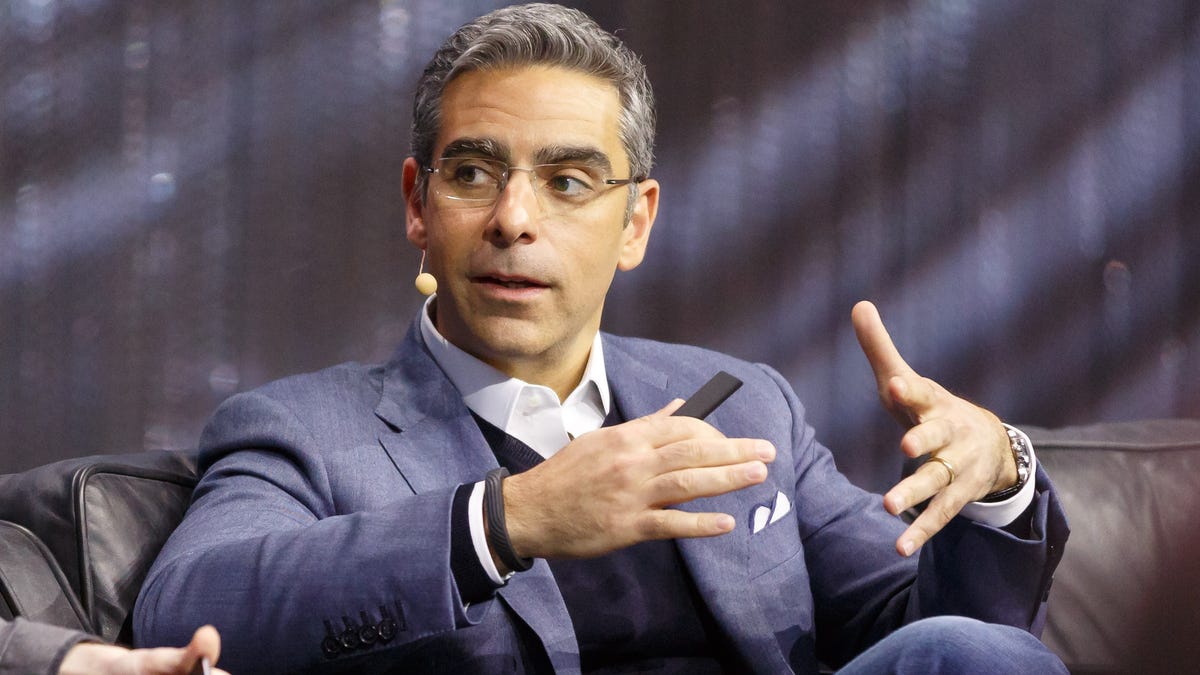PayPal president David Marcus: Bitcoin is good, NFC is bad
The leader of the payments business looks to the future and says Bitcoin is a good idea -- but not yet actually a currency. Tap-to-pay, meanwhile, is a dud.

PARIS -- Online payments will look completely different in the next decade, and Bitcoin has a better chance at revolutionizing commerce than the NFC tap-to-pay technology, PayPal President David Marcus predicted Tuesday.
"I really like Bitcoin. I own bitcoins," Marcus said at the LeWeb conference here. However, he believes people today don't correctly understand what bitcoins actually are, and he's not yet ready to let people link their bitcoin wallets with their PayPal accounts.
People are confused. They think because it's called cryptocurrency it's a currency. I don't think it is a currency. It's a store of value, a distributed ledger. It's a great place to put assets, especially in places like Argentina with 40 percent inflation, where $1 today is worth 60 cents in a year, and a government's currency does not hold value. It's also a good investment vehicle if you have an appetite for risk. But it won't be a currency until volatility slows down. Whenever the regulatory framework is clearer, and the volatility comes down, then we'll consider it.
Also, bitcoins aren't widely enough accepted by merchants yet, Marcus added.
Marcus is paying close attention to payment changes as part of his effort to re-energize an eBay service that grew sluggish and complacent after the early dot-com years. He's trying to foster innovation at the company and cater to developers, particularly those at start-ups.
Although he has some concerns about bitcoin, he's unequivocal about near-field communications (NFC), the very short-range radio communication that can let people tap a credit card or mobile phone to a payment terminal.
"It's technology for the sake of technology or for the sake of pushing the agenda of the companies supporting it, versus solving real people's problems," Marcus said of NFC.
"Instead swiping or using a PIN pad, they're tapping. How is that really better? How is that changing your life? People don't want that," he said. It's not a question of whether people at a payment terminal would prefer to tap or swipe, he said, but a reality that people don't want to go to a payment terminal at all.
Other changes are more likely, he predicted.
"Today a merchant has Internet connectivity at the point-of-sale terminal. All the consumers have phones with wireless networks," he said. "Why do you need to be at a place in a store to make a payment? [NFC is] too little too late."
Other changes will be a gradual transformation of retail to become just part of online sales.
"I think the retail chains will have to reinvent themselves," he said. They'll be showrooms where people can check out products then buy them later online. They'll be logistics centers where people can pick up items quickly that they ordered online. They'll be warehouses from which companies can ship products quickly to online purchasers.
Naturally, PayPal hopes to be part of those transactions, and to help make them easier. People like shopping but not paying, and PayPal can ease the hassles, he said.
"If we're successful, we'll make payments invisible," Marcus said.

